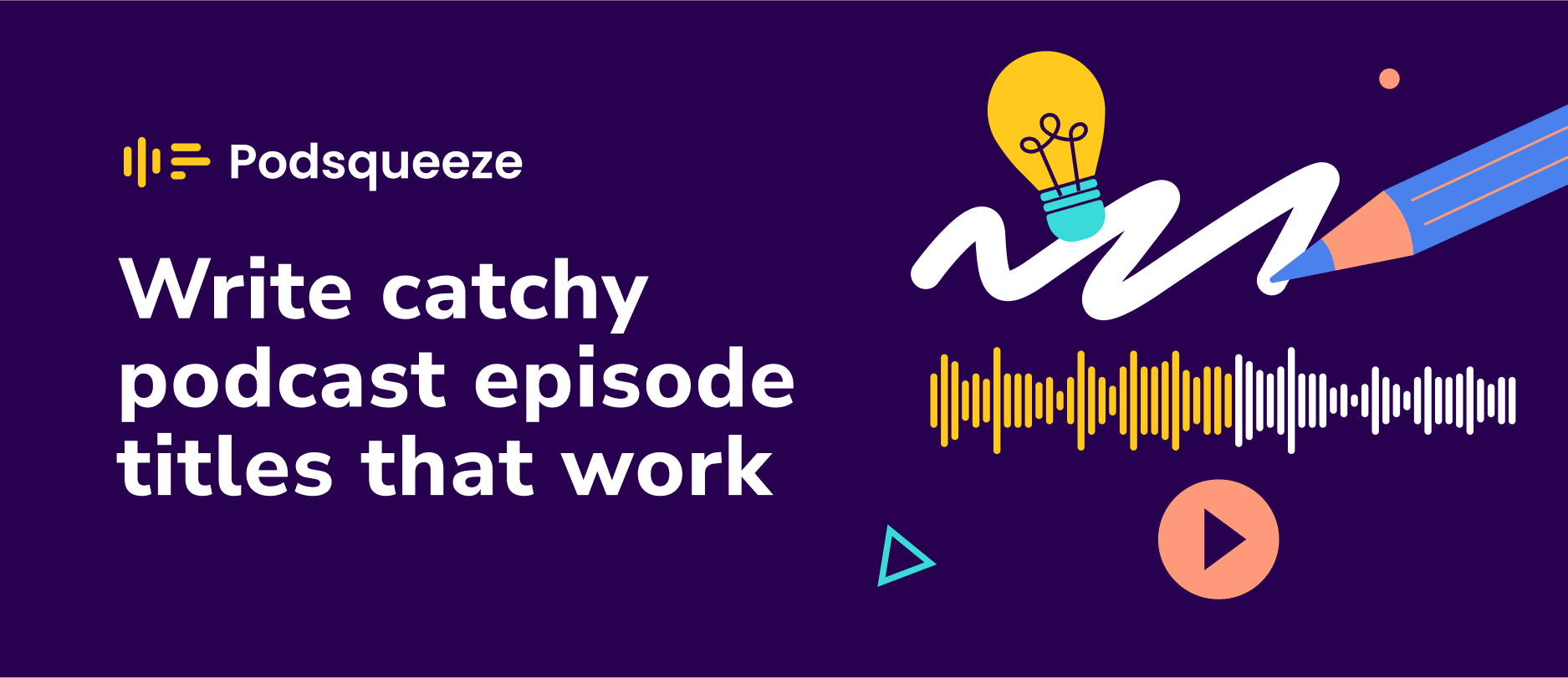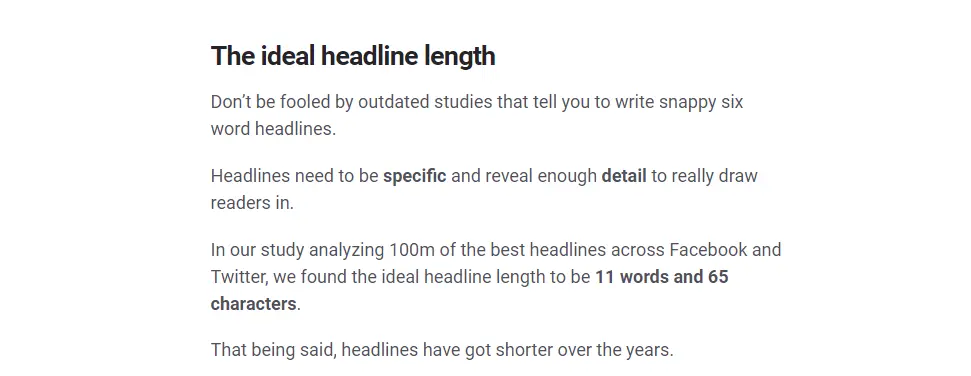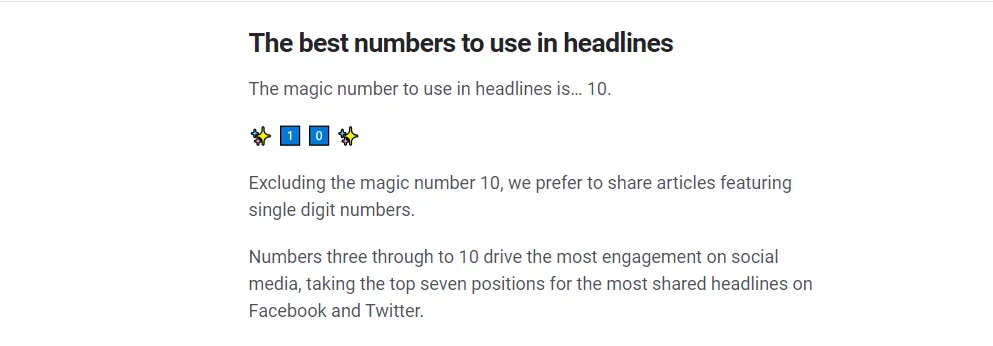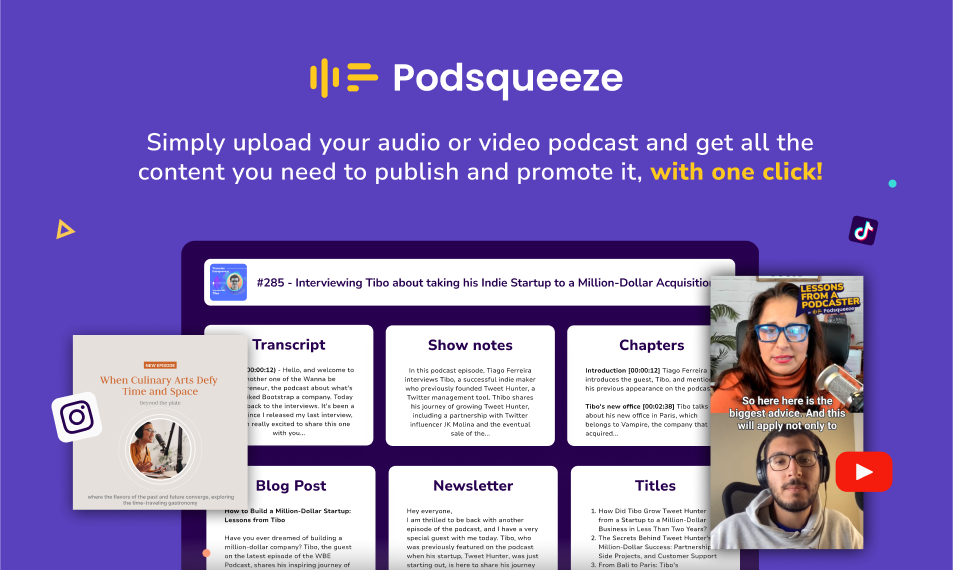BLOG ARTICLE
How to write catchy podcast episode titles that work
Last updated: 2/20/2026
Last updated: 2/20/2026
Just like a catchy thumbnail is crucial for a YouTube video, a compelling title is equally important for a podcast.
Titles are an essential element of your podcast as they can grab the attention of potential listeners and make your content more discoverable. A compelling title can entice listeners to click and listen to your episode, while a weak title may cause them to overlook your content entirely.
In fact, a good headline can increase click-through rates by up to 500%, according to Peter Koechley, managing editor at The Onion.

What makes a good headline for your podcast?
1. Ask questions
Questions trigger a psychological response in the reader, encouraging them to seek an answer or a solution, which can lead to a higher click-through rate.
Questions in headlines can signal that the content of the podcast episode will provide valuable information or insights, further motivating readers to engage with the content. According to Backlinko, headlines that included a question mark had a 23.3% higher click-through rate than those that did not.

Here are some 4 tips from CoSchedule, on how to make better question titles:
- Ask questions that spark curiosity.
ex: What's the secret behind the success of the world's top podcasters?
- Ask questions with no real answer.
ex: Is podcasting the future of storytelling or just a passing trend?
- Use questions to tease the answer in the headline.
ex: Is podcasting the new radio? It might be even better...
ex: Podcasting is dead...or is it?
2. Keep titles concise, but not too short
Keeping the headline concise ensures that potential listeners can quickly grasp the essence of the episode's content. With the limited attention span of today's audience, concise headlines can increase the likelihood of someone clicking on the podcast. However, some research suggests that keeping titles too short might not be optimal for engagement.
In the study by Buzzsumo, conducted on 100 million article headlines, it was found that headlines with 11 to 65 characters are the ideal length of headlines across Facebook and Twitter.

The research suggests that longer headlines tend to perform better in terms of engagement, which aligns with Outbrain's previous findings. The study also revealed that the number of characters in a headline has a similar relationship with engagement, with 80 to 95 characters appearing to be the optimal range.
3. Use numbers
Titles with numbers, for example, "5 Tips on how to create catchy titles", help potential listeners quickly assess whether the episode will be relevant or interesting to them and create a sense of order and structure, making the content appear more organized and easier to digest.
According to Buzzsumo headlines starting with numbers tend to receive above-average social shares, with the number 10 being the highest performing headline number, followed by 5, 15, and 7. While unique or longer numbers can be effective, on average, these four numbers are the top performers.

4. Use hyperboles
Hyperbolic headlines that use superlatives like "most," "greatest," and "best" tend to generate high levels of engagement on social media. The trigram "One of the" was a popular way to introduce hyperbolic phrases, followed by superlative adjectives like "most" or "greatest." The word "best" was found to be the most effective of all the hyperbolic and superlative words.
5. Avoid Spam words
According to Outbrain, headlines with language that conveys a sense of urgency, such as "need" or "now," generated lower click-through rates (CTR) than headlines that didn't use such pushy language. These types of words can give off an advertorial feel rather than an editorial one, which can turn readers off. Additionally, the overuse of these words over time has weakened their ability to convey a true sense of urgency.
But it's not just pushy language that turns readers away. Words that trigger email spam filters, such as "magic," "credit," "cure," and "free," have also been found to hurt CTR. Readers are getting savvier at gauging content quality from headlines and have developed refined spam filters of their own. Words like "trick," "amazing," and "secret" also showed a decrease in CTR.
How to use AI to generate titles for your podcast?
Podsqueeze is an easy-to-use tool that uses AI technology to help podcasters create engaging content quickly and easily. With its advanced transcription and analysis features, Podsqueeze can generate original content for your podcast episodes, saving you time and resources. The process of generating titles using Podsqueeze is straightforward and only requires a few clicks. You can create an account, access your dashboard, and select the "generate content" button. From there, you can choose your desired podcast episode from your RSS link or upload your episode's audio file, and Podsqueeze will provide you with five catchy titles to choose from for your episode. Podsqueeze makes it easy to repurpose your podcast episode, giving you more time to focus on producing great podcasts. Plus, Podsqueeze offers a free plan, so you can try it out without any financial commitment.

Read Next: Keep your audience engaged with a podcast newsletter
FAQs on how to write catchy podcast episode titles that work
-
Why are podcast episode titles important?
That's because podcast episode titles play a crucial role in attracting listeners by providing a glimpse of what the episode's content is about which sparks curiosity. It's the first element of your podcast episode that an audience will see followed by podcast description.
-
Should I include the episode number in the title?
It depends. Including the episode number can help listeners keep track of your episodes, especially if they're part of a series. However, it's not always necessary, especially if the episode can stand alone without being part of any series. Additionally, it's more professional to have episode titles without the episode number included.
-
How long should a podcast episode title be?
Ideally, a podcast episode title should be between 5 to 10 words to ensure it's easily scannable and memorable. But, this isn't a fixed rule as your episode title can vary depending on your niche, your podcast theme, episode details, etc. Make sure to avoid overly lengthy titles that might get truncated in podcast directories.
Repurpose your podcast content with AI